Can a German Shepherd Eat Bacon?
Date Published: February 12, 2024 | Last Modified: February 16, 2024
Before we dive into the sizzling details, it's important to establish the facts - german shepherds can indeed enjoy the occasional serving of bacon. In this article, we will explore the potential health benefits that bacon can offer these intelligent and loyal companions, as well as the pros and cons to consider. We'll address any safety concerns or lack thereof when it comes to feeding bacon to your german shepherd, clarifying whether it is toxic or not. Ultimately, we aim to determine whether this tasty treat is truly good for your furry friend.
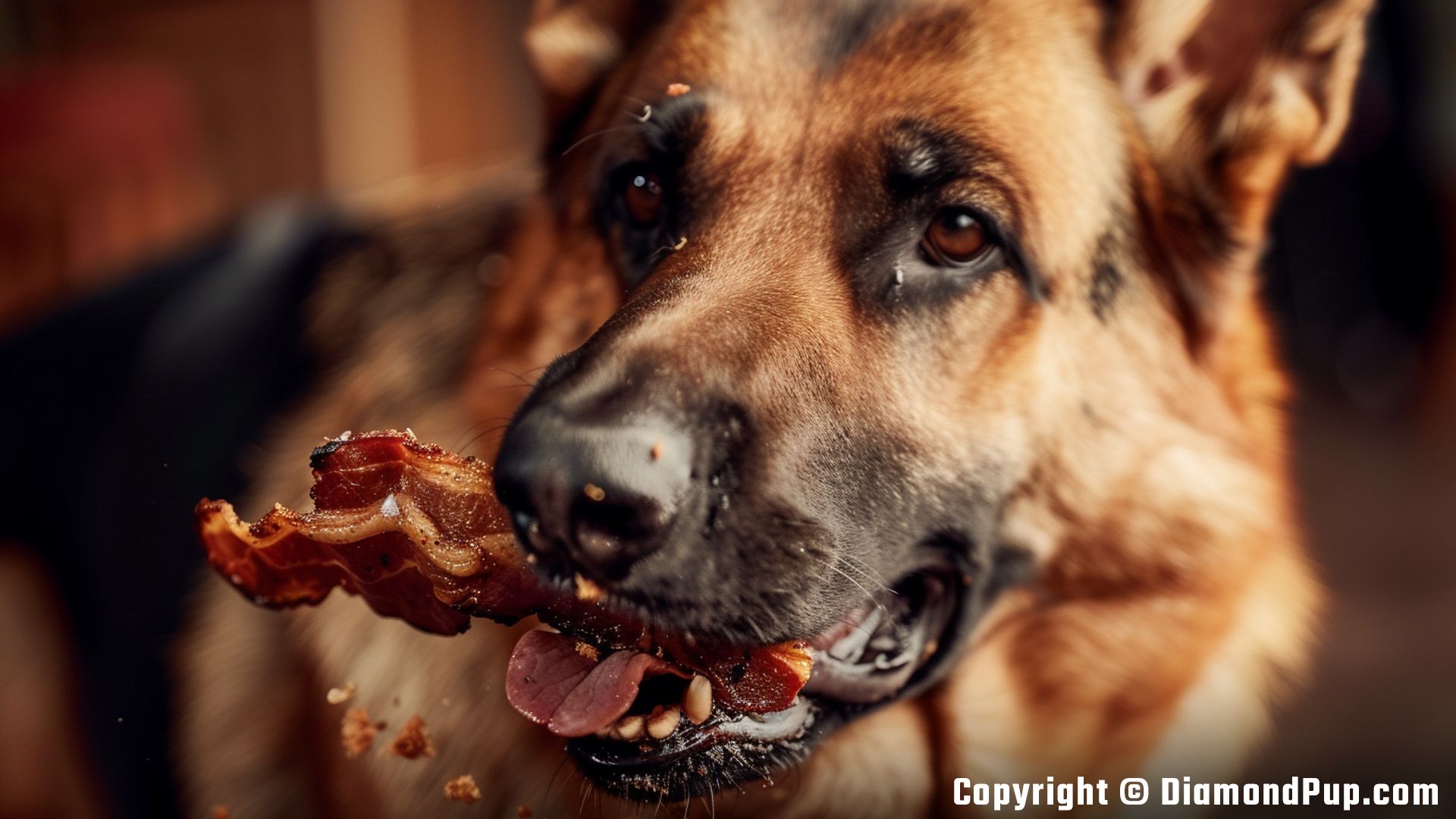
Are Bacons Good for German Shepherds?
When it comes to feeding bacon to your German Shepherd, it's important to consider both the nutritional content of the bacon and the specific needs of the breed. Bacon is high in fat and salt, which can be detrimental to a dog's health if consumed in large quantities. However, as an occasional treat, bacon can provide a tasty source of protein and energy for your German Shepherd. It's crucial to opt for lean, low-sodium bacon and feed it in moderation to prevent weight gain and other health issues.
German Shepherds are a large and active breed, known for their muscular build and high energy levels. Due to their size and activity level, they can tolerate a slightly higher fat content in their diet compared to smaller or less active breeds. When feeding bacon to your German Shepherd, be mindful of portion sizes and frequency to ensure it complements their balanced diet and doesn't overshadow their primary food source.
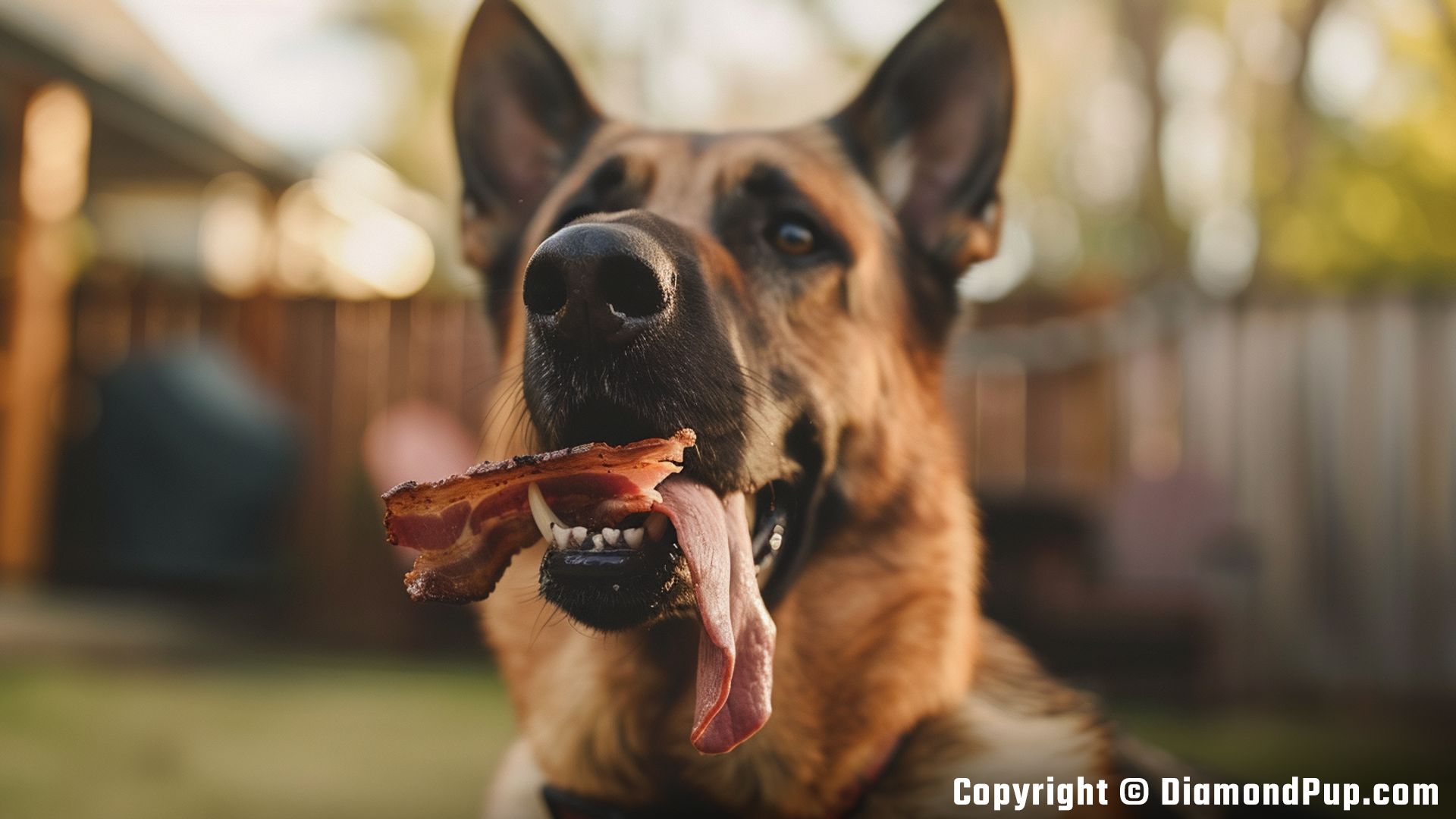
Understanding the Benefits of Bacons for German Shepherds
German Shepherds can benefit from the occasional serving of bacon due to its high protein content. Protein is essential for muscle growth, repair, and overall health in dogs, especially in a breed known for its athleticism like the German Shepherd. Additionally, bacon contains important nutrients such as iron, zinc, and B vitamins, which are crucial for maintaining a healthy coat, skin, and immune system.
However, it's important to note that bacon should only be given in moderation as it is high in fat and sodium. Excessive consumption of bacon can lead to obesity, pancreatitis, or sodium ion poisoning in dogs. Therefore, bacon should be viewed as a special treat and not as a staple in a German Shepherd's diet. Always consult with your veterinarian before making any significant changes to your dog's diet, including the introduction of bacon.
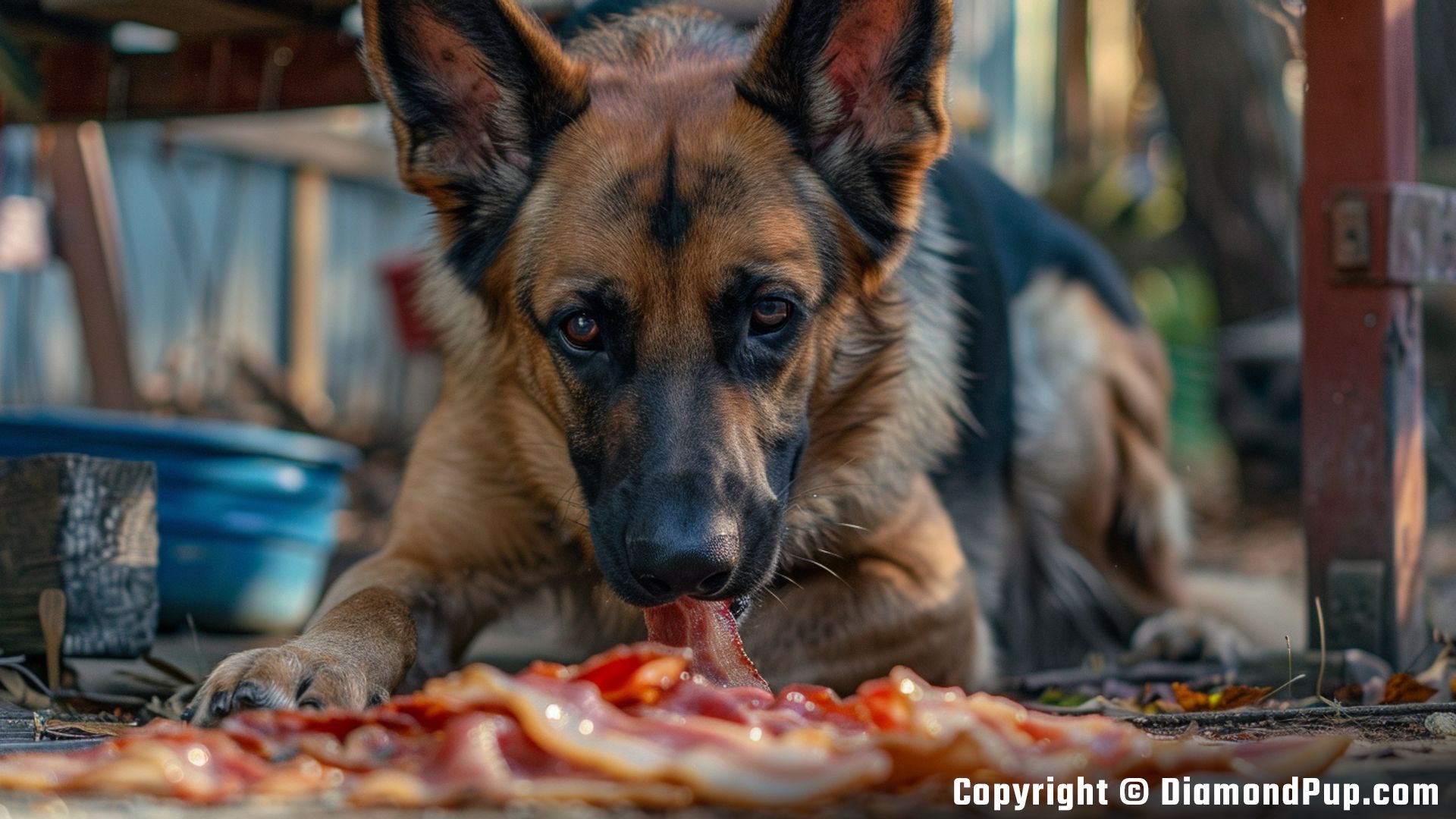
Nutritional benefits of Bacons for German Shepherds
German Shepherds can benefit from the protein and fat content found in bacon. Protein is essential for muscle development and repair, while fat provides a concentrated source of energy for active breeds like German Shepherds. However, it's important to feed bacon in moderation to prevent weight gain and potential pancreatitis due to the high fat content. Additionally, be mindful of the sodium content in bacon, which can be harmful to your dog if consumed in excess. Always opt for high-quality bacon without added preservatives or seasoning to minimize any potential health risks.
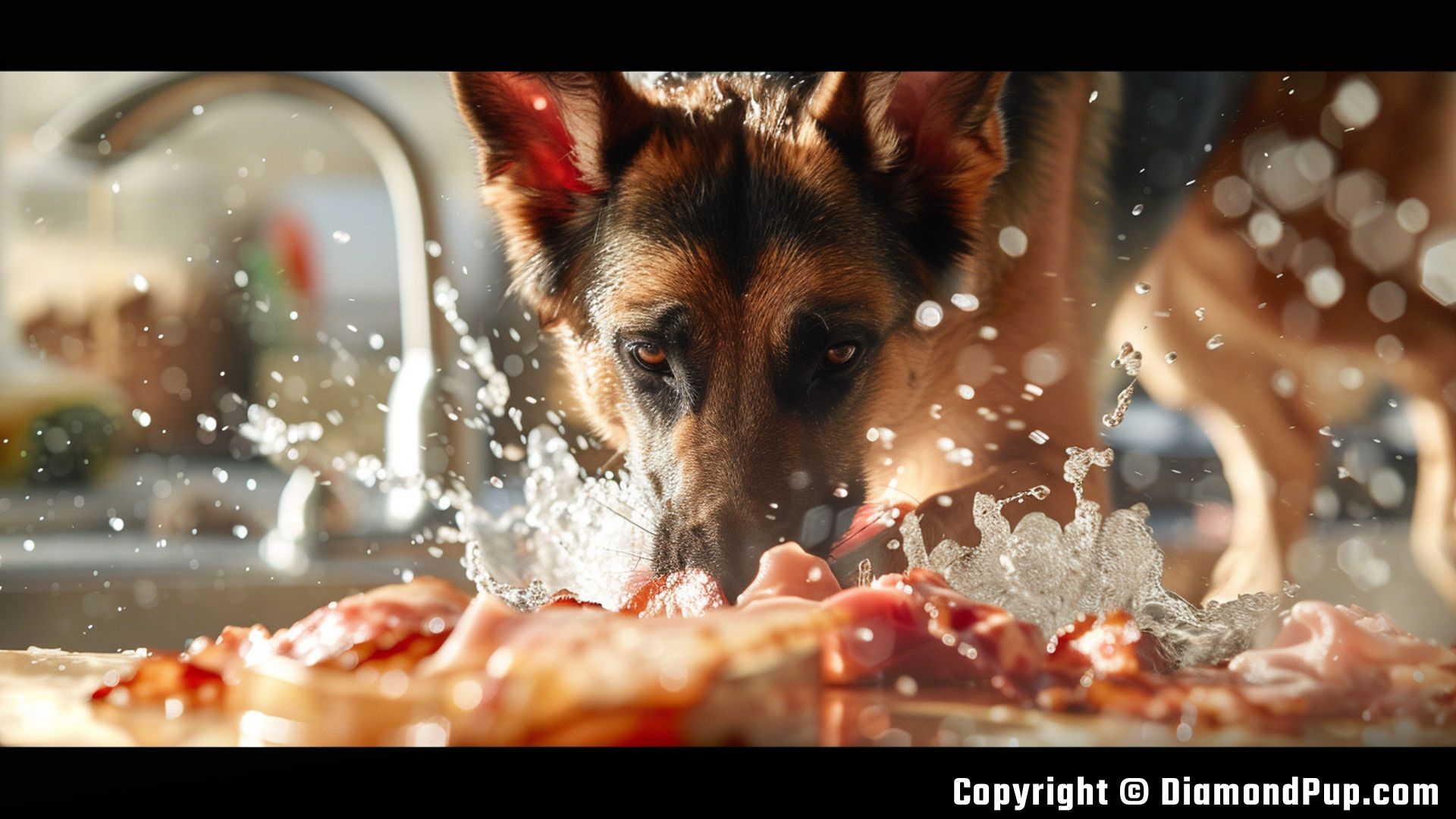
Safely Introducing Bacons to Your German Shepherd's Diet
When introducing bacon to your German Shepherd's diet, it is crucial to do so gradually and in moderation. Start by offering small pieces of cooked, unseasoned bacon as an occasional treat, rather than a regular part of their diet. People also ask are dachshunds allowed to have bacon, a question that underscores the importance of considering each breed's specific dietary needs. Monitor your dog for any signs of digestive upset, such as vomiting or diarrhea, which could indicate they are sensitive to this new food. It's also important to trim off any excess fat from the bacon strips before feeding them to your pup, as too much fat can lead to pancreatitis in dogs, especially in breeds prone to this condition like German Shepherds.
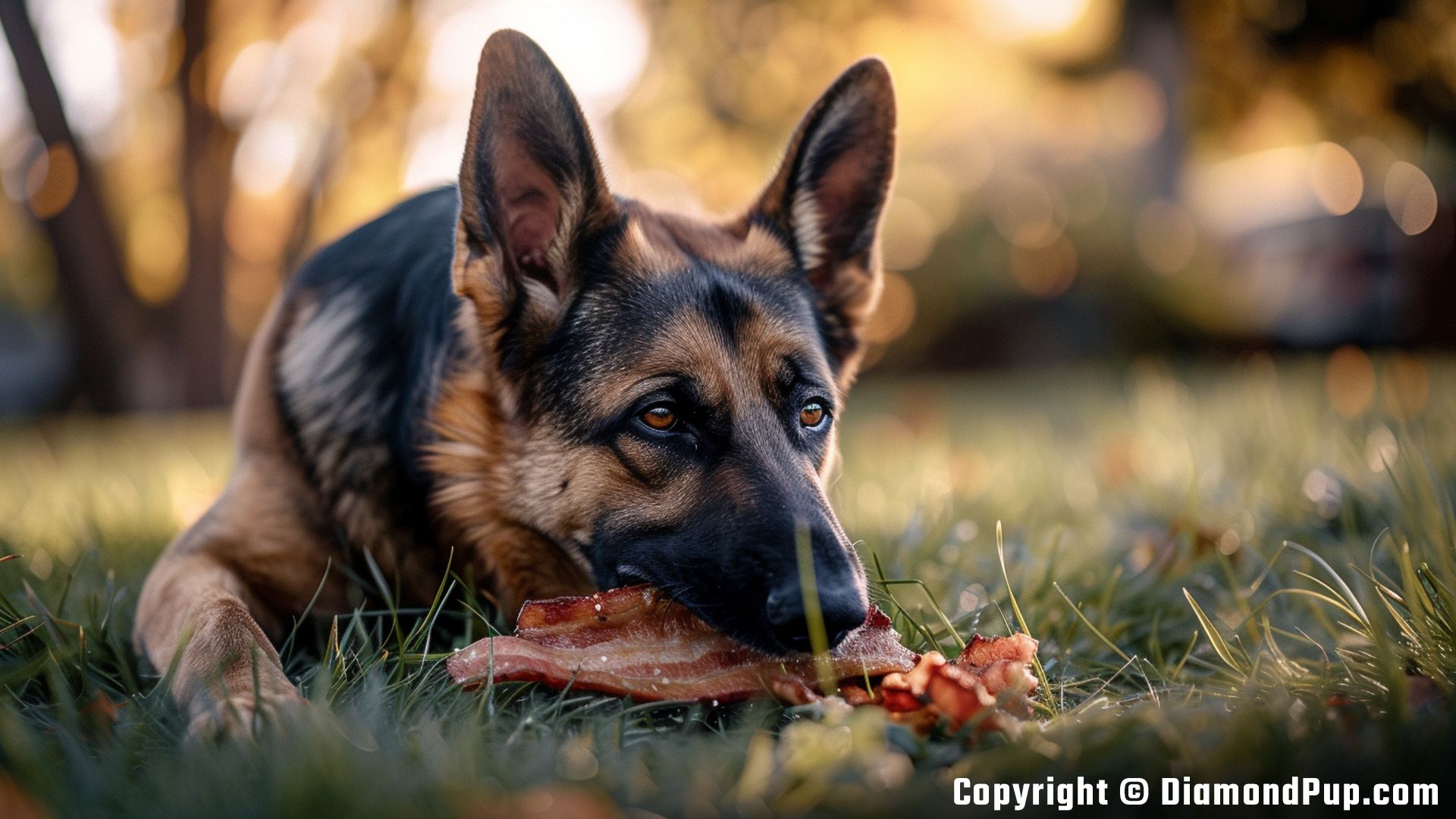
How much bacon can a dog eat safely?
When it comes to feeding your German Shepherd bacon, moderation is key. While bacon can be a tasty treat for your furry friend, it should only be given in small amounts as an occasional indulgence. People also ask about feeding chicken to german shepherds: yes or no? Too much bacon, or any high-fat treats for that matter, can lead to weight gain, digestive issues, and even pancreatitis in dogs. As a general guideline, bacon should make up no more than 10% of your dog's daily caloric intake. It's important to prioritize a balanced diet with appropriate dog food that meets all their nutritional needs, and to view bacon as more of a special reward rather than a regular part of their diet.
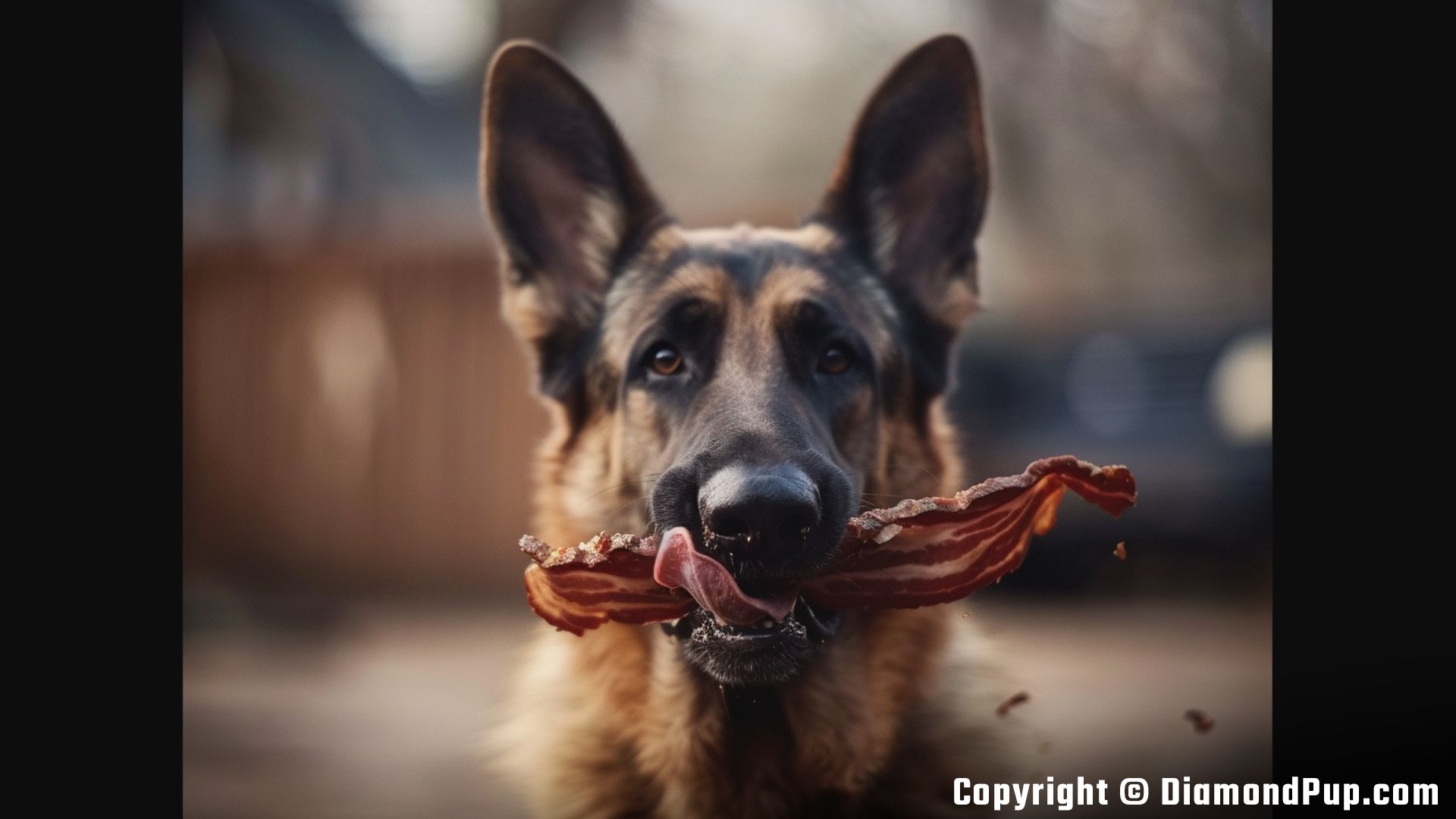
Tips to Remember When Feeding Your German Shepherds Bacons
When feeding your German Shepherd bacon, it's crucial to remember that moderation is key. While bacon can be a tasty and enjoyable treat for your furry friend, it should only be given in small amounts occasionally. Excessive consumption of bacon can lead to weight gain and other health issues such as pancreatitis due to its high fat content.
Additionally, it's important to choose a high-quality, lean bacon option for your German Shepherd to minimize the intake of unhealthy fats. Look for bacon that is low in sodium and free of any seasonings or additives that may be harmful to your dog. Always consult with your veterinarian before making any significant changes to your dog's diet, including incorporating bacon as a treat.
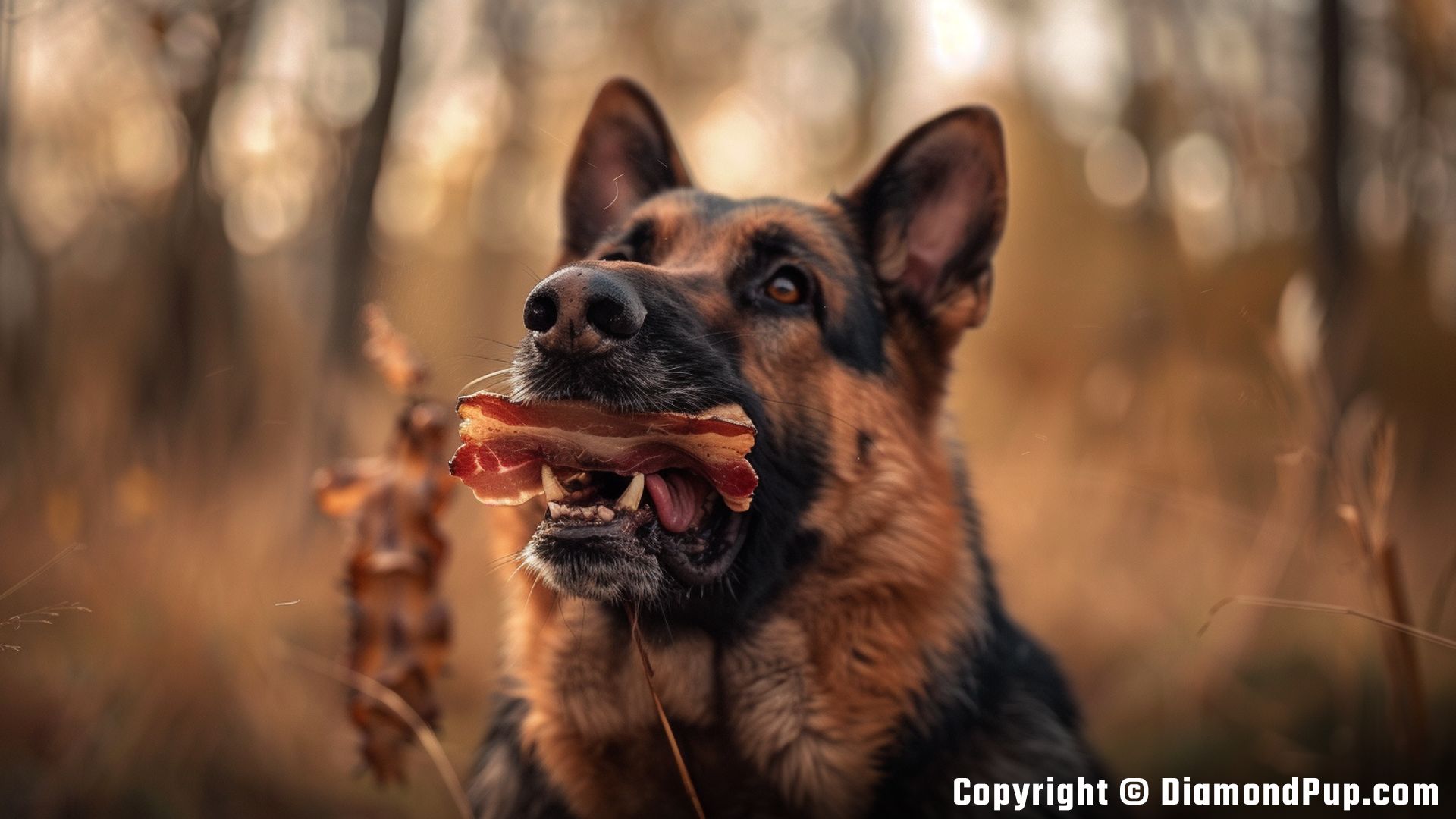
Feeding Your German Shepherds Bacons
When it comes to feeding your German Shepherd bacon, it's important to do so in moderation. While bacon can be a tasty and high-value treat for training or special occasions, it should not make up a significant portion of their diet. German Shepherds have specific nutritional requirements that are best met through a balanced and complete diet formulated for their breed.
When selecting bacon for your German Shepherd, opt for lean cuts that are low in sodium and seasonings. Excessive fat and salt intake can lead to digestive upset and other health issues in dogs. It's also crucial to avoid feeding your dog raw or undercooked bacon, as it can contain harmful bacteria that may cause food poisoning. Overall, bacon should be given sparingly and as a supplement to their regular meals to maintain their overall health and well-being.
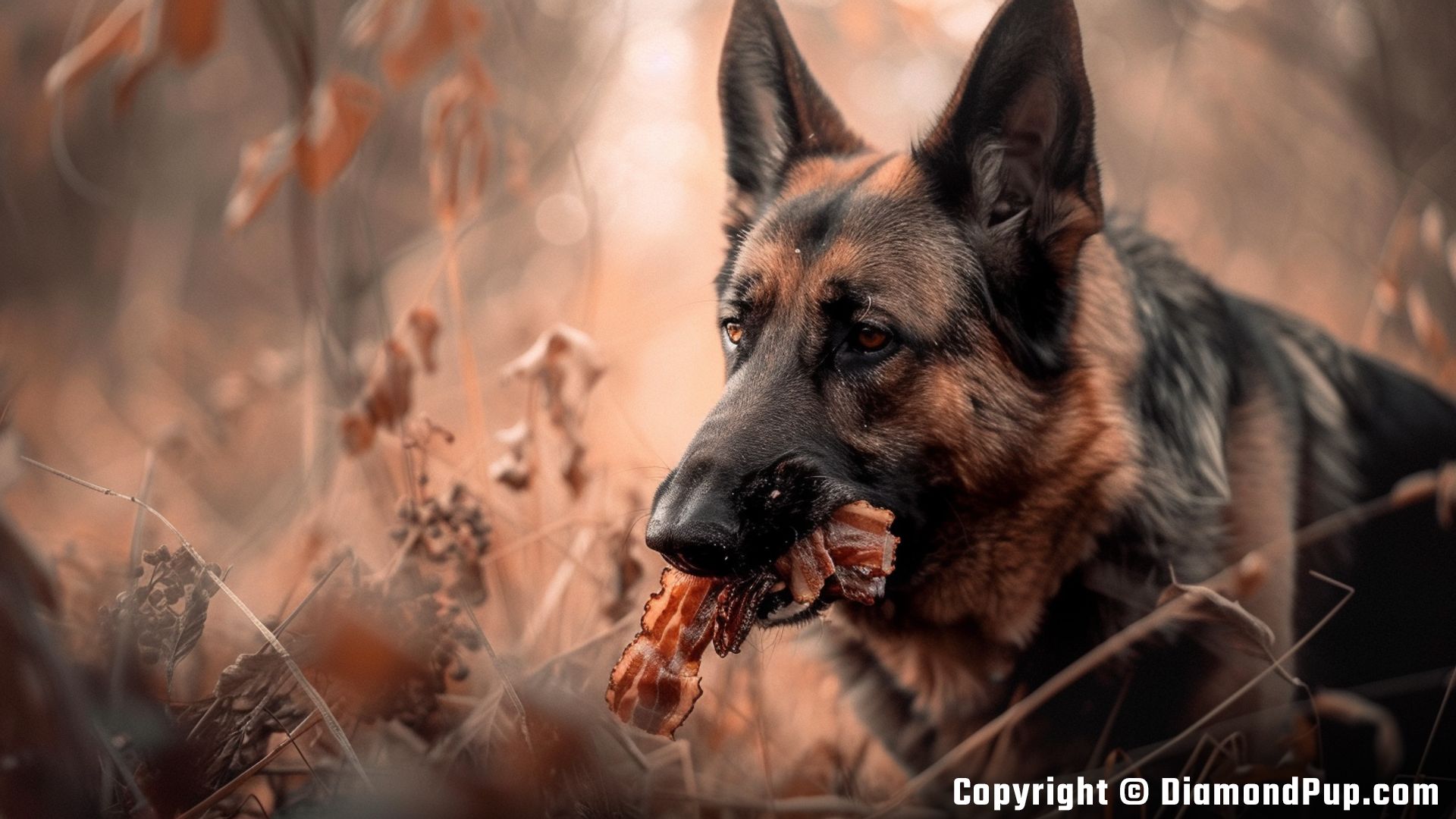
How to properly feed your German Shepherds Bacons
When it comes to feeding your German Shepherd bacon, moderation is key. While bacon can be a delicious occasional treat for your furry companion, it should not make up a significant portion of their diet. It is important to remember that bacon is high in fat and salt, which can lead to health issues such as obesity, pancreatitis, or sodium ion poisoning if consumed in large quantities.
When serving bacon to your German Shepherd, opt for lean cuts with minimal seasoning and ensure it is cooked thoroughly to avoid any potential contamination. Additionally, it's crucial to balance their overall diet by providing a mix of high-quality commercial dog food that is specifically formulated to meet the nutritional needs of a German Shepherd, along with appropriate fruits and vegetables for added fiber and nutrients.
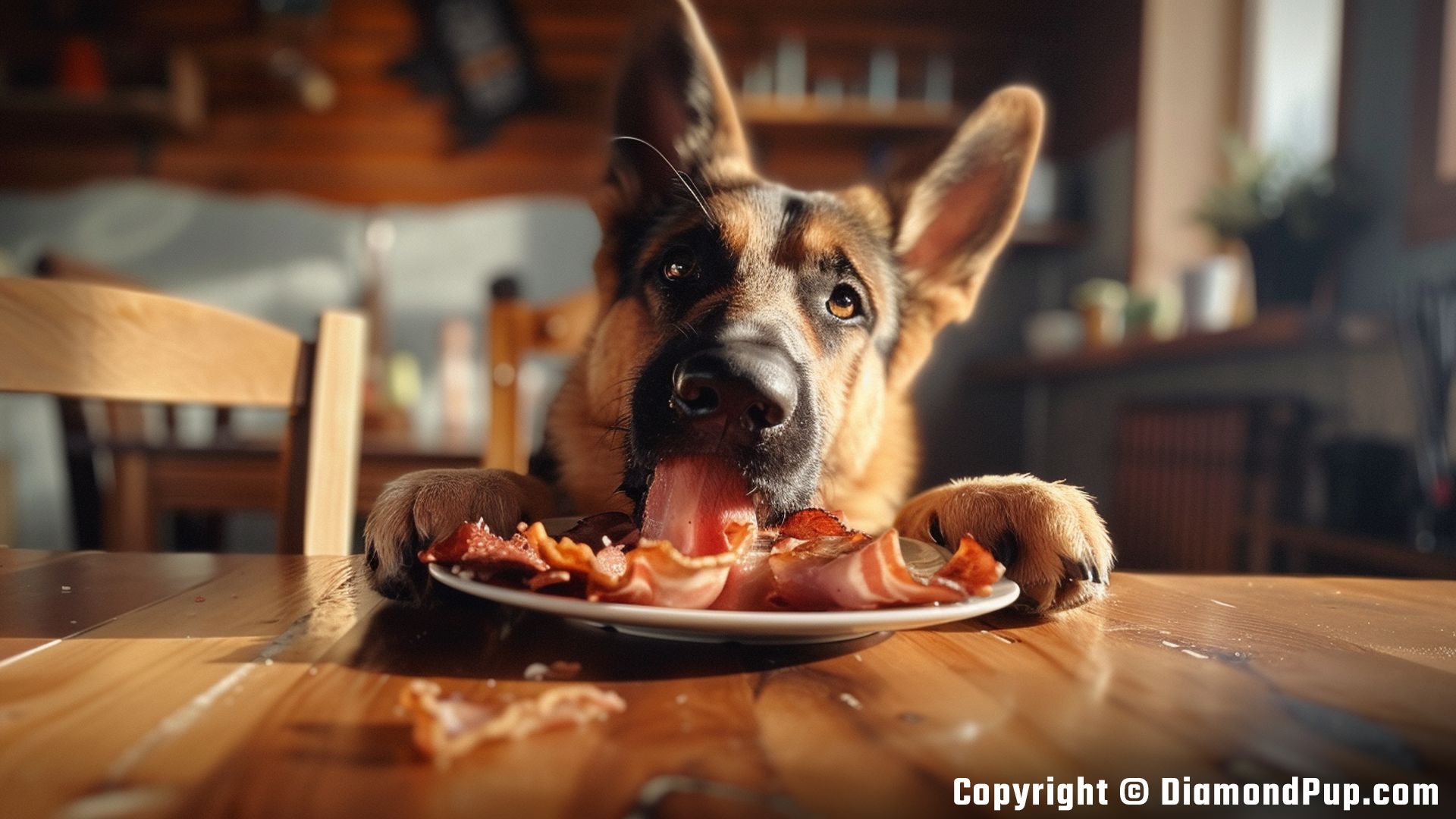
Do German Shepherds Like Bacons?
German Shepherds are known to have a hearty appetite, and many of them absolutely love the taste of bacon. Due to their carnivorous nature and love for meat, it's no surprise that bacon can be a delicious and enjoyable treat for them. When feeding your German Shepherd bacon, it's important to do so in moderation to prevent any potential health issues that may arise from consuming too much fatty or salty foods.
While it's perfectly fine to offer your German Shepherd a small piece of bacon as an occasional treat, it should not be a significant part of their regular diet. Always ensure that the bacon is cooked thoroughly to avoid any harmful bacteria that may be present in raw or undercooked meat. Additionally, be mindful of any added seasonings or ingredients that could be harmful to your pup, such as onion or garlic powders. Overall, bacon can be a tasty and exciting snack for your German Shepherd when given in appropriate quantities and prepared safely.
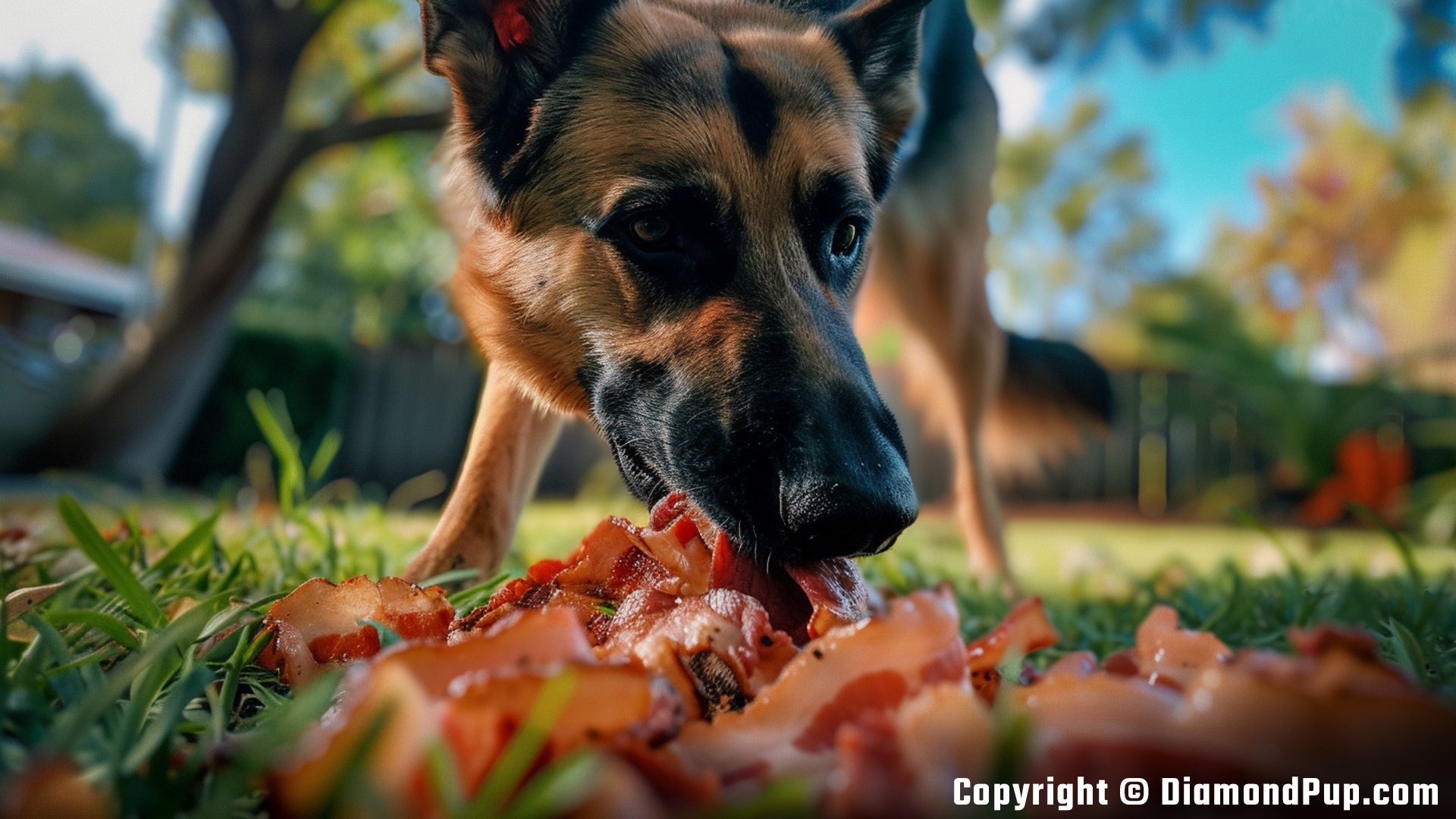
Special Consideration for German Shepherds
German Shepherds are known for their sensitive digestive systems and potential for developing certain health issues, such as pancreatic problems. When it comes to feeding bacon to your German Shepherd, it is crucial to keep in mind their individual health needs. Due to the high fat content in bacon, it is important to monitor the amount given to prevent gastrointestinal upset. Additionally, excessive consumption of bacon can lead to obesity in German Shepherds, which can further exacerbate existing health concerns.
It is advisable to opt for leaner cuts of bacon and to feed it to your German Shepherd in moderation. Avoiding seasonings and additives, such as salt and spices, is key in maintaining your furry friend's overall health. Consulting with your veterinarian about incorporating bacon into your German Shepherd's diet is recommended to ensure that it aligns with their specific nutritional requirements and health status.
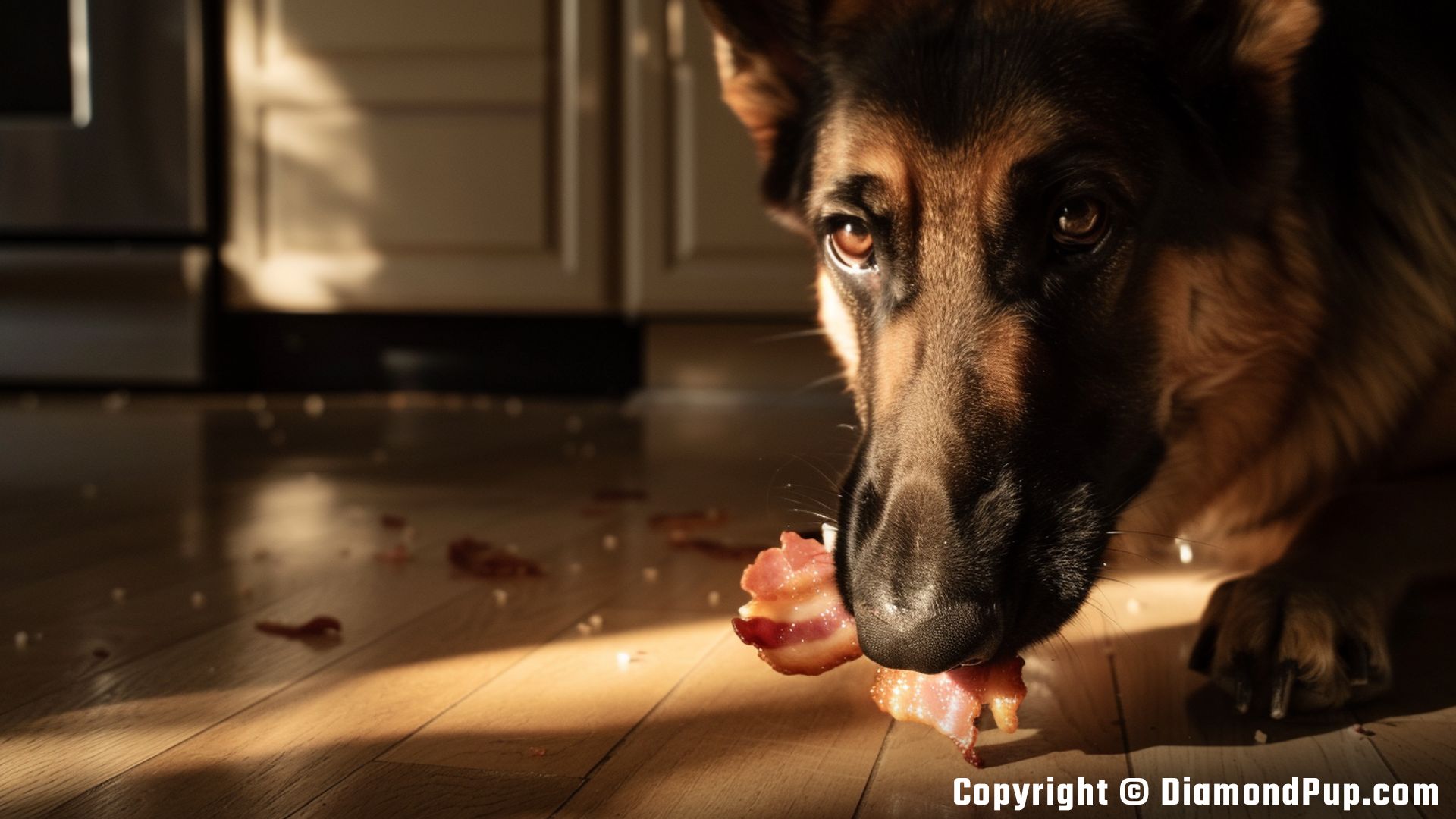
Can Puppies Have Bacons?
When it comes to feeding bacon to your German Shepherd puppy, caution is key. While bacon can be a tasty treat for adult dogs, it is not recommended for puppies. Puppies have delicate digestive systems that may not be able to handle the high fat content and salt levels in bacon. Excessive consumption of bacon can lead to pancreatitis, obesity, and other health issues in young dogs. It is best to stick to a balanced puppy diet approved by your veterinarian to ensure your German Shepherd puppy grows up healthy and strong.
Instead of bacon, consider using small pieces of cooked lean meat or training treats specifically designed for puppies as rewards. These alternatives will still be tasty for your puppy while being less risky for their health. Always consult with your veterinarian before introducing any new foods to your German Shepherd puppy's diet to prevent any potential digestive upset or nutrient imbalances.
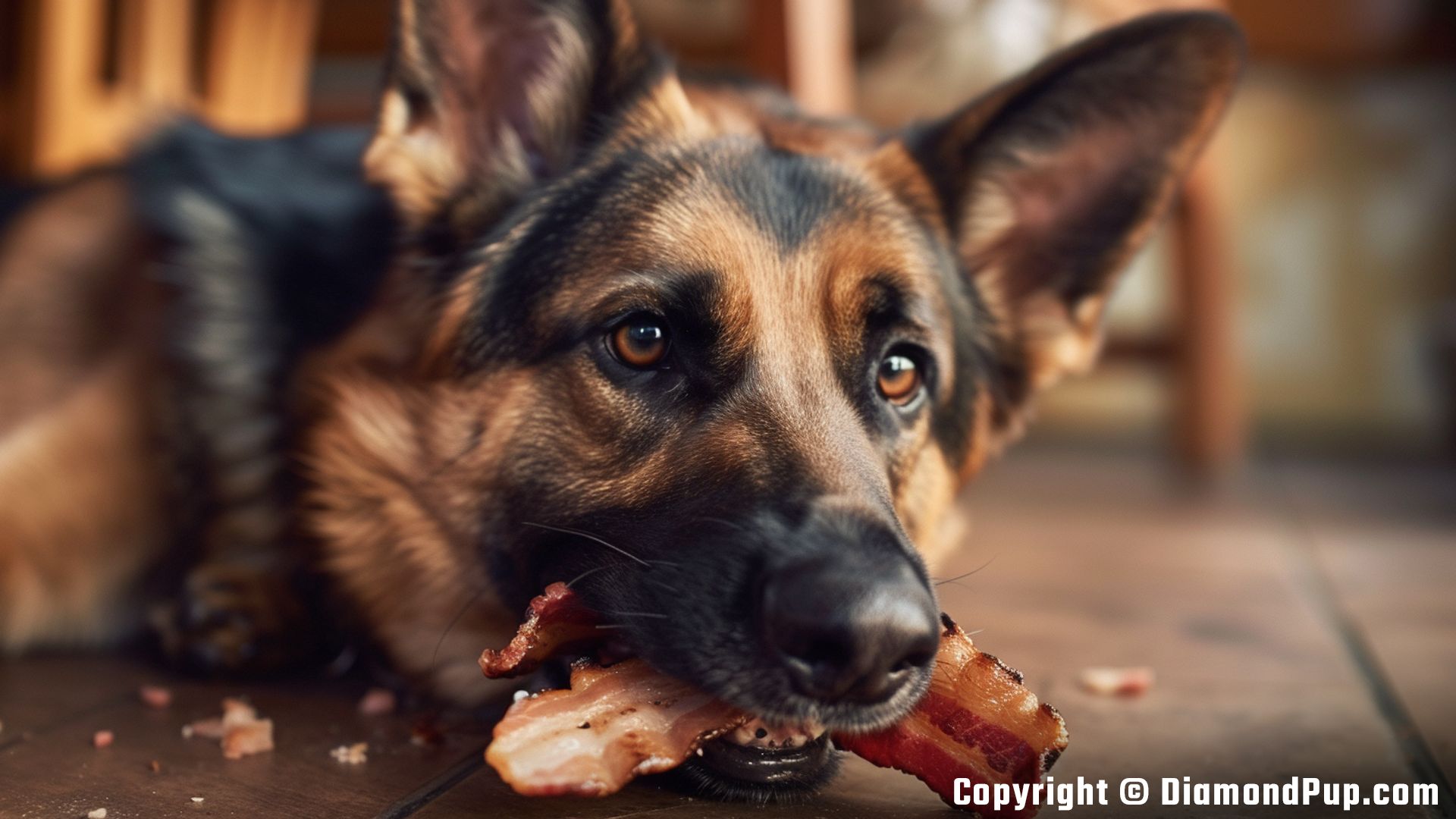
Are there any German Shepherds that shouldn't eat Bacons?
Although bacon can be a tasty treat for most German Shepherds, there are certain individuals within this breed who should avoid consuming it. Dogs with a history of pancreatitis, a condition where the pancreas becomes inflamed, should steer clear of high-fat foods like bacon. Additionally, German Shepherds who are prone to obesity or have a sensitive stomach may also want to avoid bacon due to its rich and fatty nature.
Always consult with your veterinarian before introducing bacon or any new food into your German Shepherd's diet, especially if they have any pre-existing health conditions. Your vet can provide personalized recommendations based on your dog's specific needs and help you make the best nutritional choices to keep your furry friend happy and healthy.
Recipes for Feeding Your German Shepherds Bacons
When it comes to feeding your German Shepherd bacon, it's important to consider the quality and preparation of the bacon. Opt for lean, low-sodium bacon to reduce the risk of gastrointestinal upset and pancreatitis. Avoid bacon that is heavily processed or seasoned, as these additives can be harmful to your dog's health. It's best to cook the bacon until it is crispy to remove excess fat, which can be difficult for some dogs to digest. Additionally, always ensure that the bacon is served in small, bite-sized pieces to prevent choking hazards and to make it easier for your dog to chew.
For a balanced meal, consider pairing the bacon with other nutritious ingredients such as vegetables or fruits that are safe for dogs, like carrots or apples. Remember, bacon should only be given occasionally as a special treat and should not make up a significant portion of your dog's diet. As always, consult with your veterinarian before making any major changes to your dog's diet to ensure that it is appropriate for their individual needs and health status.
Alternatives to Bacons for German Shepherds
While bacon can be a delicious and occasional addition to your German Shepherd's diet, it is important to consider some healthier alternatives for daily meals. One excellent option is high-quality commercial dog food that is specifically formulated for large breeds like German Shepherds, such as XYZ brand adult large breed formula. This type of dog food is balanced with the necessary nutrients like protein, fats, carbohydrates, vitamins, and minerals to support your dog's overall health and well-being.
Another alternative to bacon is incorporating lean meats into your German Shepherd's diet, such as cooked chicken or turkey without any seasonings or skin. These protein sources can provide the necessary amino acids for muscle development and maintenance, without the excess fat and sodium content often found in bacon. Remember to consult with your veterinarian before making any significant changes to your dog's diet to ensure that it meets their specific nutritional needs.
Common Questions About German Shepherds and Bacons
One common question that arises when considering feeding bacon to German Shepherds is whether the high salt content in bacon can be harmful to these dogs. While a small amount of bacon as an occasional treat is generally safe, it's important to keep in mind that excessive salt intake can lead to health issues such as dehydration and electrolyte imbalances.
Additionally, another concern is the fat content in bacon. German Shepherds are prone to pancreatitis, a condition that can be triggered by high-fat foods. Therefore, it's crucial to limit the amount of bacon given to your furry friend to prevent any potential digestive issues or weight gain. As always, moderation is key when it comes to indulging your German Shepherd with bacon.
Subscribe Now
Stay updated with the latest news and articles! We'll keep you updated on the latest tips for your pet German Shepherd
